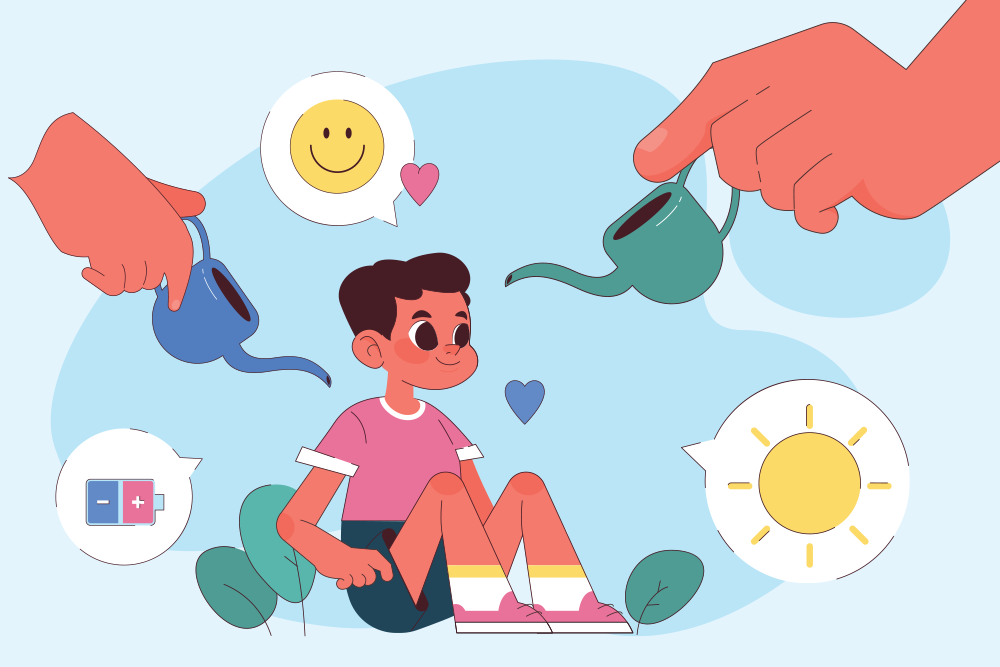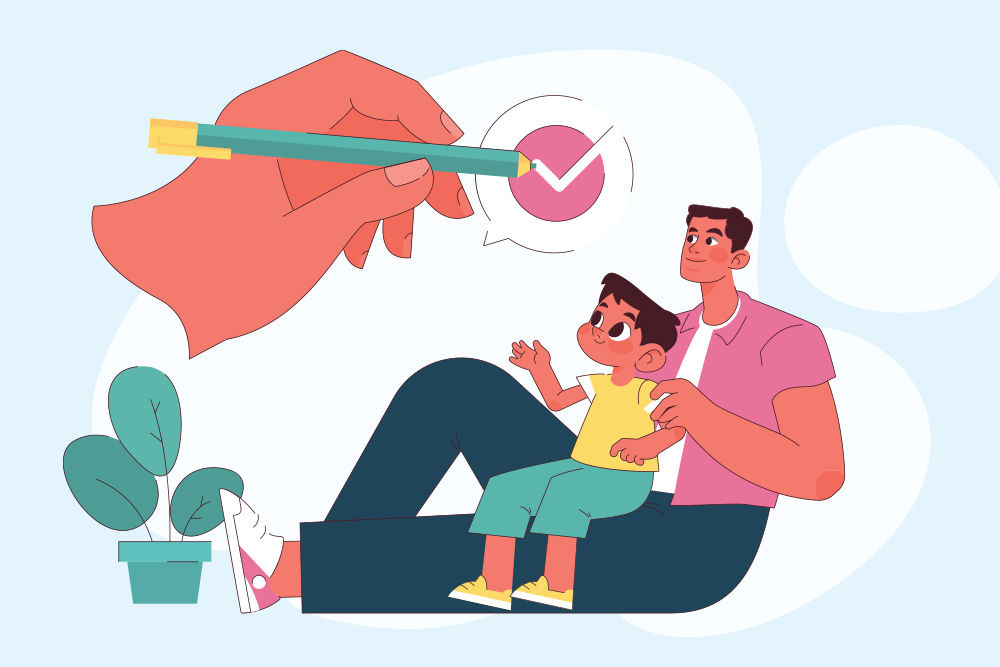Being the Pillar to Support the Pressure
In their relentless pursuit of ‘making the grade’, many children and teenagers end up grappling with mental and emotional stress. Here’s what parents can do to ease their burden.

Examination and social pressures children in Singapore face are very real. National examinations such as the PSLE, and ‘O’ and ‘A’ levels, have seen one too many children succumbing to the mental and emotional pressure, some with severe consequences. Socially — and especially on the school front and social media — the pressures of fitting in, measuring up and exceeding expectations are equally significant, if not stronger, as children grow into teenagers. However, as concerned adults and carers, you do not need to despair as there are a plethora of ways you can offer concrete support and help.
Accept and believE THE CHILD’S experience of pressure as real
It helps the child when you come to them demonstrating that you believe and accept their struggles as something that is real and pressing. Playing it down or sidestepping discussions about their stress does not help.
According to Erikson’s psychosocial model of development, children from the ages of seven to 18 experience two overarching challenges: industry vs inferiority, as well as identity vs confusion. Children innately want to handle social and academic demands well, and failing to do so results in their sense of inferiority. They explore their independence and sense of self in the teenage years. Not navigating this stage well can lead to insecurity and confusion about who they are and their future. Empower the child by taking their issues seriously, listen to their setbacks without judgement, and affirm their strengths and abilities.
MANAGE Stress and Learning
We already have a barrage of information on how to deal with studying and keeping stress at bay. Keeping a routine, setting feasible and measurable goals, staying healthy, sleeping well, having structured rewards systems, practising mindfulness, having friends, drawing mind maps, the list goes on.
When I (Sophie) was growing up, I realised my mother took very different approaches to supporting my siblings and me. When I failed to anticipate my mother’s reactions based on how she had previously responded to my siblings, I sometimes wondered if she was experimenting with us! In retrospect, perhaps she understood that every child is unique and one size does not fit all.
Some children need a very strong structure to help them keep a routine, while others need more autonomy. In fact, the same child may need different sorts of encouragements at different times of the day, be it a kind word, an attentive listening ear, or a small snack at the right time. These can do wonders. Stand in the child’s shoes and communicate gently to know what works best. Do what you can, within your unique circumstances, to provide that support and be flexible.

![]()
Do not forget that you and the child are two separate individuals with different needs and life journeys. Enjoy the closeness and separateness of the relationship as you become a supportive witness of your child’s growth and achievements.
CREATE SPACE AND CLOSENESS AT THE SAME TIME
Sometimes, in a bid to support the child, well-intentioned parents or carers may unconsciously become too caught up in the study and social stress facing the child. Providing inappropriate or overly intense support for a child who is already stressed can contribute to a strained parent/carer-child relationship which can in itself be an unnecessary stressor for both the adult and child.
Allowing appropriate space for the relationship to not be just about stress, studies and other social pressures can reap longer-term benefits. Consider outsourcing some tasks that can be overwhelming for you and which tend to cause friction between you and the child. This may be prioritising activities that serve to enhance your bond, or enlisting the help of family, friends and professionals (e.g. getting a coach). You are seen as supportive after your child experiences you as being on the same side. Do not forget that you and the child are two separate individuals with different needs and life journeys. Enjoy the closeness and separateness of the relationship as you become a supportive witness of your child’s growth and achievements.
SecurE yourself
Perhaps you are reading this because you think that your child can thrive better with your efforts to become a better parent/carer. If that is so, perhaps the following can help you find some rest in your pursuit to becoming a perfect parent/carer.
In English paediatrician Dr Donald Winnicott’s seminal work
1, he described a carer as being “good enough”. The concept states that a child has innumerable needs and a carer may not be able to meet all of those needs. However, a child does not need a perfect carer. A child can thrive with good enough support, as the child can adapt accordingly. A similar concept is resilience, where, by allowing ourselves to experience and learn from failures, we gain more in life.
In today’s busy ‘hustle culture’, there can be an endless list of to-dos to ensure our success. At times, parents and carers may feel guilty and disappointed for not meeting their child’s every need. Remember that your child is learning from your security and responses. If you are very anxious about your child’s performance, you are more likely to ask anxious questions and your child can pick up the tension in you. However, if you are confident and secure, your child can pick up that confidence and draw from your stability. It is not easy to stay stable, secure and calm, given that many things in a child’s life today can seem at high-stakes — and it is very easy to spiral into thinking that a bad grade in one exam, or one bullying incident, can scar your child forever.
When you notice yourself feeling the stress, it is important then to first find your inner peace. Doing some deep-breathing exercises (e.g. box breathing) and keeping a healthy lifestyle may be helpful in keeping you grounded and secure so that your child can be influenced by and grow through your security.
Dr Vivienne Ng (Arts and Social Sciences ’98) is a Post-doctoral Fellow and Ms Sophie Cheng (Arts and Social Sciences ’04) is an Instructor. They are both with the NUS Department of Social Work.
1 Winnicott, D. W. (2018). Transitional objects and transitional phenomena 1—a study of the first not-me possession 2. In Influential Papers from the 1950s (pp. 202-221). Routledge.
Text by Dr Vivienne Ng and Ms Sophie Cheng
![]()